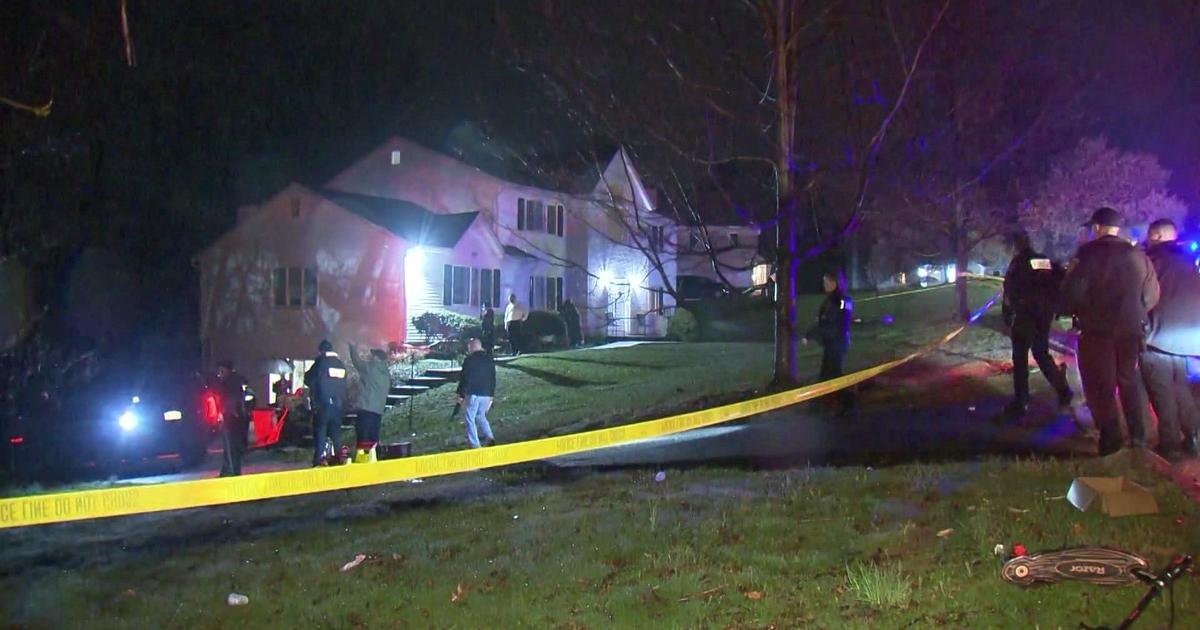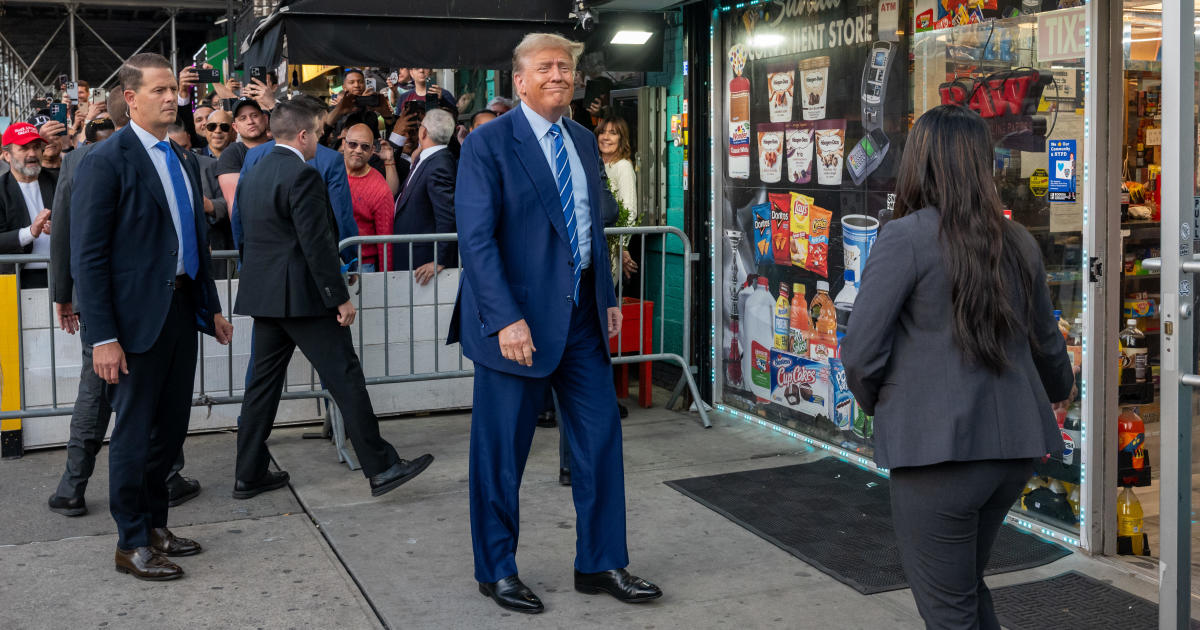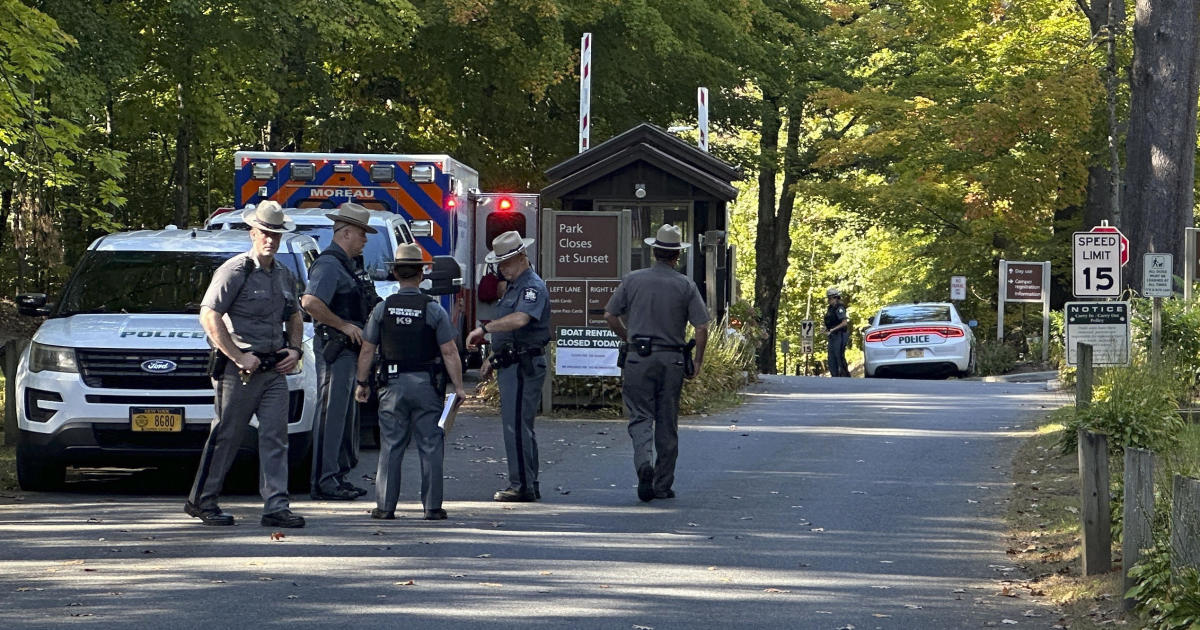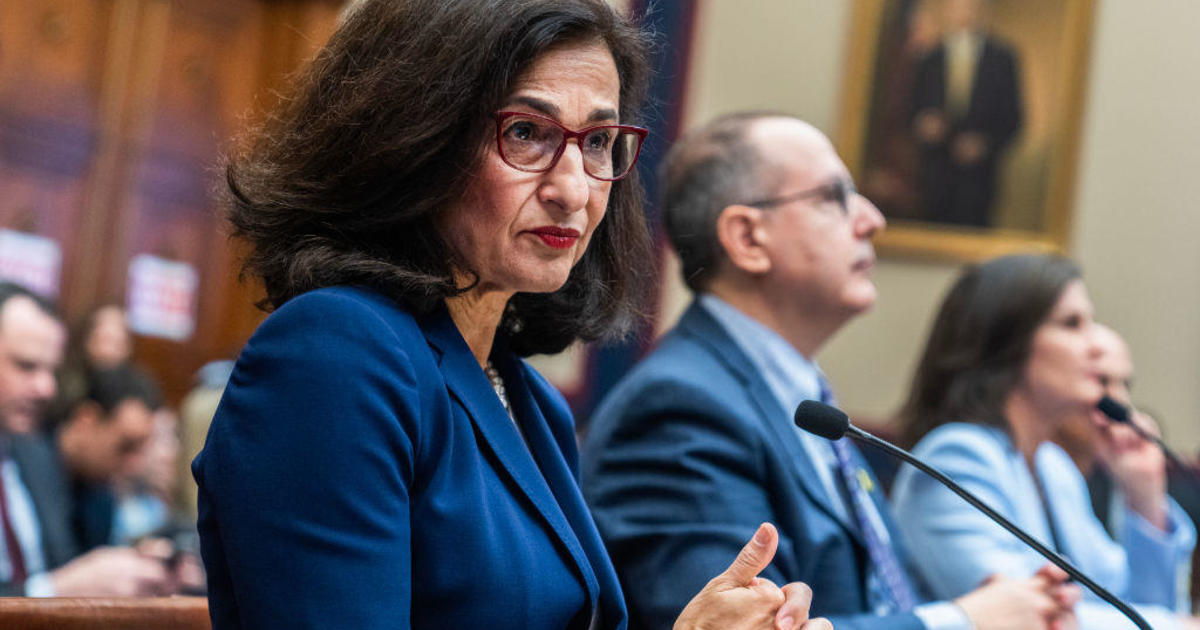Michael Skakel, Kennedy Cousin, To Seek Release On Bond
HARTFORD, Conn. (CBSNewYork/AP) -- With a new trial ordered for Michael Skakel, a defense lawyer for the Kennedy cousin serving time in the 1975 slaying of a neighbor said he will seek his release from prison on bond.
Skakel's conviction was set aside Wednesday by Connecticut judge Thomas Bishop, who ruled that Skakel's trial attorney failed to adequately represent him when he was found guilty in 2002.
Bridgeport State's Attorney John Smriga said prosecutors will appeal the decision.
Michael Skakel, Kennedy Cousin, To Seek Release On Bond
Skakel's current attorney, Hubert Santos, file Skakel's bail application Thursday afternoon in Superior Court in Vernon, Conn., CBS 2's Lou Young reported. If a judge approves it, Skakel could then post bond and be released from prison.
"We're very, very thrilled,'' Santos said. "I always felt that Michael was innocent.''
Skakel's attorneys said their client's family is ready to post as much as $500,000 in cash to secure his release.
Link: Read the judge's ruling
Skakel argued that his trial attorney, Michael Sherman, was negligent in defending him when he was convicted in the golf club bludgeoning of Martha Moxley when they were 15 years old in Greenwich.
Prosecutors contended Sherman's efforts far exceeded standards and that the verdict was based on compelling evidence against Skakel.
John Moxley, the victim's brother, said the ruling took him and his family by surprise and they hope the state wins an appeal.
"Having been in the courtroom during the trial, there were a lot of things that Mickey Sherman did very cleverly,'' Moxley said. "But the evidence was against him. And when the evidence is against you, there's almost nothing you can do.''
Skakel's cousin Robert F. Kennedy Jr. has always maintained that Skakel was not present at the scene of the crime.
"My cousin Michael Skakel, who is innocent of this crime and who was 11 miles away with five eyewitnesses," Kennedy said. "And Mickey Sherman failed to turn up and that's what was right in front of him, and that's why the judge said he was reversing this."
In his ruling, the judge wrote that defense in such a case requires attention to detail, an energetic investigation and a coherent plan of defense.
"Trial counsel's failures in each of these areas of representation were significant and, ultimately, fatal to a constitutionally adequate defense,'' Bishop wrote. "As a consequence of trial counsel's failures as stated, the state procured a judgment of conviction that lacks reliability.''
Among other issues, the judge wrote that the defense could have focused more on Skakel's brother, Thomas, who was an early suspect in the case because he was the last person seen with Martha Moxley.
Had Sherman done so, "there is a reasonable probability that the outcome of the trial would have been different,'' the judge wrote.
During a state trial in April on the appeal, Skakel took the stand and blasted Sherman's handling of the case, portraying him as an overly confident lawyer having fun and basking in the limelight while making fundamental mistakes from poor jury picks to failing to track down key witnesses.
"He led me to believe these people were coming to testify on my behalf," Skakel said.
Sherman has said he did all he could to prevent Skakel's conviction and denied he was distracted by media attention in the high-profile case.
Prosecutors said Sherman spent thousands of hours preparing the defense, challenged the state on large and small legal
issues, consulted experts and was assisted by some of the state's top lawyers.
Sherman attacked the state's evidence, presented an alibi and pointed the finger at an earlier suspect, prosecutors said.
"This strategy failed not because of any fault of Sherman's, but because of the strength of the state's case,'' prosecutor Susann Gill wrote in court papers.
Skakel, who maintains his innocence, was denied parole last year and was told he would not be eligible again to be considered for release for five years.
Moxley's mothe, Dorothy, said the ruling has not shaken her belief in Skakel's guilt.
"I do believe Michael Skakel killed my daughter," she said. "I don't believe there's any doubt in that. He convicted himself practically."
William Dunlap, a law professor at Quinnipiac University who has followed the case for decades, said Skakel was just about out of legal options.
"I think this was his last chance to avoid spending the next 10 years or so in prison," Dunlap told Young.
Dunlap said Skakel's chances of acquittal increase with the passage of time.
"It's going to be a real problem, I think, for the prosecution," he said. "I mean, people were saying at the original trial back in 2002 that this is really hard for the prosecution 25, 27 years after the event. Now it's another 10 years, and witnesses disappear, memories fade."
Check Out These Other Stories From CBSNewYork.com:
(TM and © Copyright 2013 CBS Radio Inc. and its relevant subsidiaries. CBS RADIO and EYE Logo TM and Copyright 2013 CBS Broadcasting Inc. Used under license. All Rights Reserved. This material may not be published, broadcast, rewritten, or redistributed. The Associated Press contributed to this report.)



